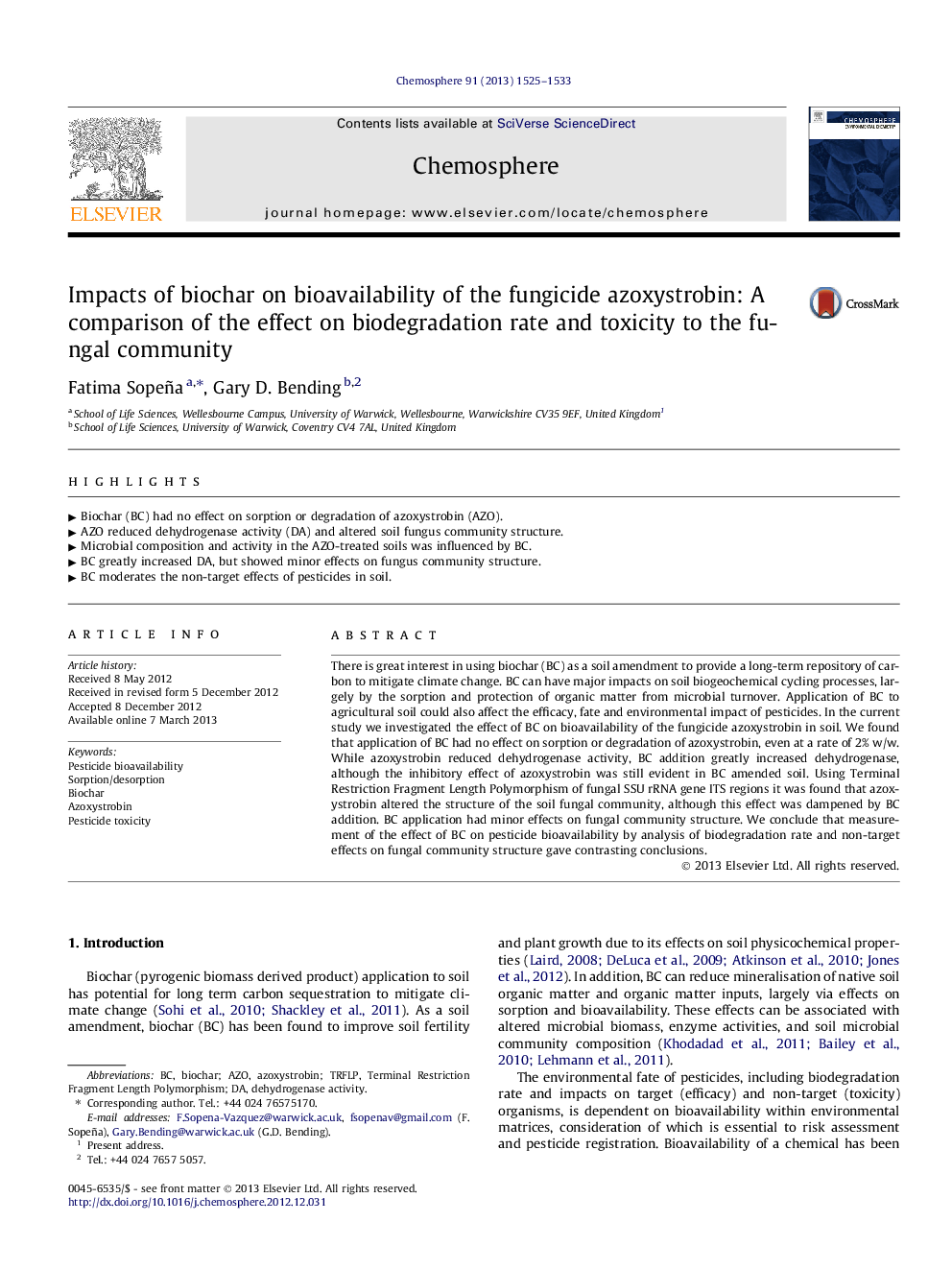| Article ID | Journal | Published Year | Pages | File Type |
|---|---|---|---|---|
| 4409408 | Chemosphere | 2013 | 9 Pages |
There is great interest in using biochar (BC) as a soil amendment to provide a long-term repository of carbon to mitigate climate change. BC can have major impacts on soil biogeochemical cycling processes, largely by the sorption and protection of organic matter from microbial turnover. Application of BC to agricultural soil could also affect the efficacy, fate and environmental impact of pesticides. In the current study we investigated the effect of BC on bioavailability of the fungicide azoxystrobin in soil. We found that application of BC had no effect on sorption or degradation of azoxystrobin, even at a rate of 2% w/w. While azoxystrobin reduced dehydrogenase activity, BC addition greatly increased dehydrogenase, although the inhibitory effect of azoxystrobin was still evident in BC amended soil. Using Terminal Restriction Fragment Length Polymorphism of fungal SSU rRNA gene ITS regions it was found that azoxystrobin altered the structure of the soil fungal community, although this effect was dampened by BC addition. BC application had minor effects on fungal community structure. We conclude that measurement of the effect of BC on pesticide bioavailability by analysis of biodegradation rate and non-target effects on fungal community structure gave contrasting conclusions.
► Biochar (BC) had no effect on sorption or degradation of azoxystrobin (AZO). ► AZO reduced dehydrogenase activity (DA) and altered soil fungus community structure. ► Microbial composition and activity in the AZO-treated soils was influenced by BC. ► BC greatly increased DA, but showed minor effects on fungus community structure. ► BC moderates the non-target effects of pesticides in soil.
